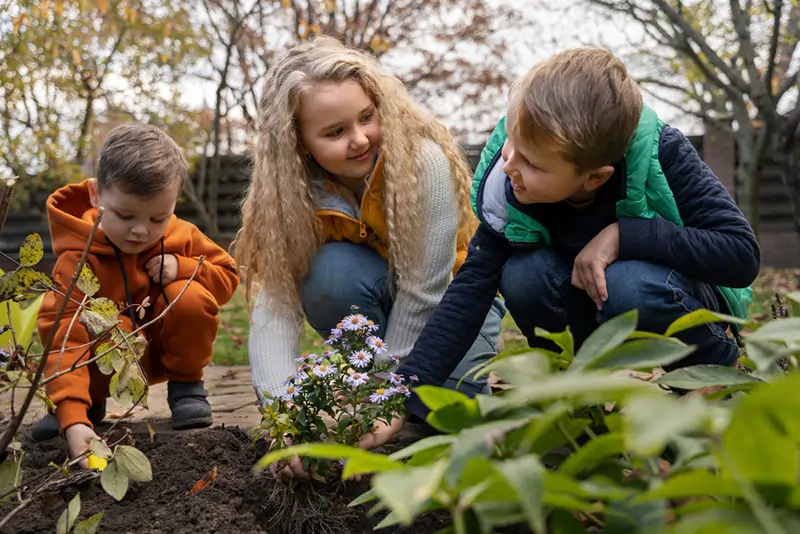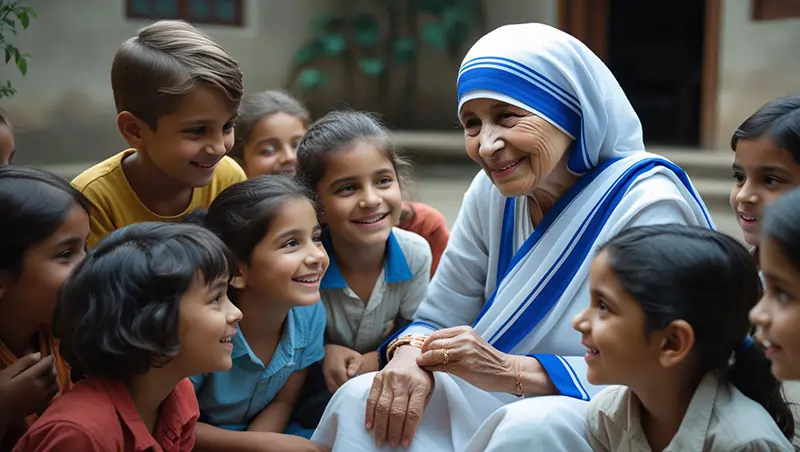Cultivating Curiosity: How Gardening with Safe Plants Teaches Children Responsibility and Science Basics
Gardening is an engaging hands-on activity that offers more than the beauty of flowers and the bounty of fruits and vegetables. It serves as an invaluable practical classroom, teaching children responsibility, science, ecology, and the natural world through hands-on experience with safe plants. Gardening helps children learn essential life skills and scientific principles through direct experience.
Choosing Safe Plants
Before gardening with children, it’s crucial that they choose plants that are safe and appropriate for their age group. This will avoid health concerns and ensure a pleasant gardening experience that fosters learning.
- Edible Plants: Plant edible items like cherry tomatoes, strawberries, or carrots to engage children’s imagination and encourage them to eat what they grow.
- Non-Toxic Flowers: Sunflowers and marigolds make wonderful visual accents while remaining nontoxic should children accidentally touch or inhale them.
Choose plants carefully, considering factors like allergen presence, ease of care, and resilience—this ensures an enjoyable gardening experience for young learners.
Gardening Is A Powerful Way To Teach Responsibility
Gardening can be an excellent way to teach children about responsibility. Caring for plants requires constant attention and follows a routine that children can learn and follow.
- Daily Watering: Make sure that they understand the significance of watering their garden according to plant needs and weather conditions, including how often to water each plant or area of soil in their garden.
- Weeding and Tidying: By learning to identify weeds, children will also grasp the value of keeping their space tidy to promote plant health.
This daily and weekly routine allows children to see first-hand the effects of their actions or neglect, serving as an invaluable lesson in responsibility.
Gardening Offers Experience in Basic Science
Gardening gives children plenty of chances to explore fundamental scientific concepts through practice. From the lifecycle of plants to ecological balance in a garden, children can learn foundational science concepts in an entertaining and immersive setting.
- Photosynthesis: Explaining how plants make food using sunlight can be eye-opening for young children.
- Life Cycle of Plants: From seedling to total growth and back again, children can witness first-hand how the life cycle moves from seeds to harvest.
Interactive activities like monitoring plant growth, comparing soil types, or tracking the effects of sunlight and water provide valuable learning experiences.
Economical Gardening
Starting a garden doesn’t have to be expensive, and one way to keep costs down is by choosing cheap weed seeds. These seeds can offer an affordable entry point for teaching children gardening basics. Here’s why starting with cheaper options can be beneficial:
- Cost-Effective Learning: Cheap weed seeds reduce the initial investment in gardening, making it more accessible and less risky, especially when gardening with children still learning the basics of plant care.
- Wide Variety: Often, less expensive seeds still offer various plants, allowing children to explore different gardening experiences without a significant financial outlay.
Experimentation and Learning
Every garden offers children an opportunity for experimentation and discovery. They can try growing different species together, testing soil amendments, or applying different amounts of water to see what happens!
- Plant Combinations and Environment Effects: Which plants go well together and why?
- Environment Effects: Do environmental conditions such as sunlight levels or type of soil influence plant growth?
These experiments teach scientific method principles, such as making predictions and observing outcomes, and develop critical thinking and problem-solving abilities.
Conclusion
Gardening with children using safe plants is an enriching experience that teaches responsibility and science while developing their appreciation of nature. Children gain essential life skills through gardening with safe plants, such as nurturing a garden while stimulating curiosity and responsibility and broadening their world knowledge naturally and enjoyably.



